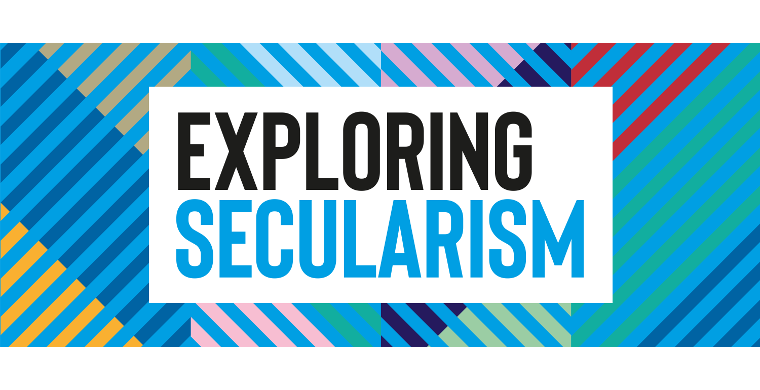When All Hope Is Lost: Secularism Can't Provide Any Adequate Hope
ALBERT MOHLER
THE BRIEFING
https://albertmohler.com/2019/09/20/briefing-9-20-19
Sept 20, 2019
But next, I want to shift to an article that appeared just this week in The New Yorker. It is by novelist Jonathan Franzen, and it is deeply revealing as we think of the theological worldview that both drives the society around us and diagnoses that culture around us. Jonathan Franzen writes the article in The New Yorker and the headline is, "What if We Stopped Pretending."
Pretending what? Well as he says, pretending that we have hope about the future. He writes about climate change, and he writes about impending doom that cannot be prevented. He writes, "Even if the Green New Deal were to be adopted, it's too late," he says. "We need to stop pretending that it's not too late." He writes this way, "If you're younger than 60, you have a good chance of witnessing the radical destabilization of life on earth. Massive crop failures, apocalyptic fires, imploding economies, epic flooding, hundreds of millions of refugees fleeing regions made uninhabitable by extreme heat or permanent drought. If you're under 30," he writes, "you're all but guaranteed to witness it."
But he says it is unrealistic to hope that catastrophe is preventable, and he goes on to say that even as this denial makes sense psychologically -- and he writes, "Despite the outrageous fact that I'll soon be dead forever, I live in the present, not the future." He goes on to decry both major political parties in the United States. He says that the Republican Party is in denial against science. That's his accusation. But he says that the Democratic Party and even those who are the proponents of the Green New Deal, they are living under the delusion that it will matter. He says it won't. It's too late.
He says if we were rightly to respond to this challenge, he says, "The first condition is that every one of the world's major polluting countries institute draconian conservation measures, shut down much of its energy and transportation infrastructure, and completely retool its economy."
Let me just point out that what that would actually lead to is mass starvation. It would lead to millions of people freezing to death in the cold. There is no way to do what Jonathan Franzen demands in his first demand, and perhaps that's why he has no hope about the future.
But The New Yorker is after all, one of the major periodicals of the cultural elite. And Franzen, an elite novelist, is writing to fellow members of the cultural elite basically saying, "You're doomed. Deal with it."
He also apparently has very little confidence that whatever climate change options and directions may be taken by people, for example in New York City, they are going to still be doomed. As he writes, "Making New York city a green utopia will not avail if Texans keep pumping oil and driving pickup trucks."
And when it comes to what must be done, he says right now in order to recover even a hope for hope, he says, "Finally, overwhelming numbers of human beings, including millions of government-hating Americans need to accept high taxes and severe curtailment of their familiar lifestyles without revolting. They must accept the reality of climate change and have faith in the extreme measures taken to combat it."
Well extreme? How extreme. Well so extreme that virtually everything has changed. Nothing remains as it is, and all the energy is turned off, and all the economic activity will come to an end. And then he says, this will only be possible if overwhelming numbers of human beings agree to a severe curtailment of their familiar lifestyles without revolting.
Well the fact is -- and I'll insist that this is true -- the fact is that people in Manhattan would be the first to revolt even before the people in Texas. It would be just to put the matter as bluntly as possible, far easier to live without modern forms of technology and energy in most of Texas than in any of Manhattan.
But the big worldview issues so demonstrated in this article has to be with the collapse of secular hope. And that's really interesting because if you were to rewind history and go back to the end of the 19th century in both Europe and in the United States, you would see that a secular hope, a hope in humanity, a hope in some arc of history had begun to compete with the Christian theology of hope. And in many places, especially amongst the intellectually sophisticated, that secular understanding of hope completely replaced a biblical understanding of hope.
But that secular understanding or theology of hope hasn't fared very well because human beings, as the 20th century demonstrated, can't rightly or sanely put much confidence in human beings, much less than human moral progress. If you look at the 20th century, you have two horrifying world wars caused by human beings. And in a moral insanity that even in retrospect cannot fully be explained, you have all the horrors of the Third Reich. You have genocide. You have all of the evidence of the 20th century into the 21st century that there is no basis of a secular hope. Then you absolutely put an end to that secular hope with the climate change predictions and prophecies, which is exactly where Jonathan Franzen is. If you come to understand the science of climate change, he says, then all hope simply evaporates.
But as we come to an end, we do have to understand that human beings can't live without hope. God made us that way. And perhaps this represents for Christians an opportunity to speak to our increasingly hopeless neighbors of the hope that is within us.














